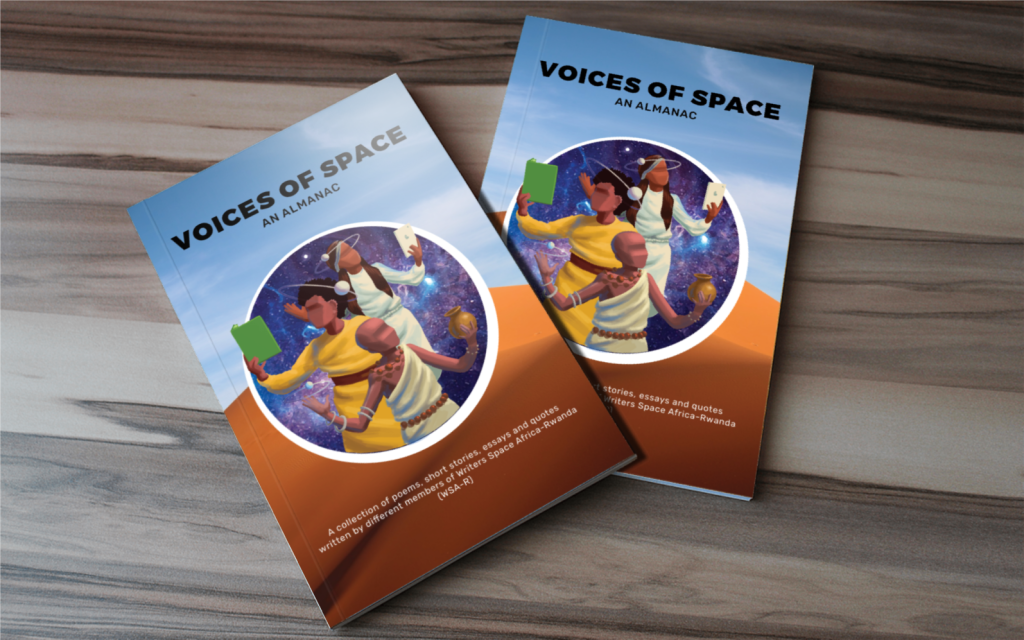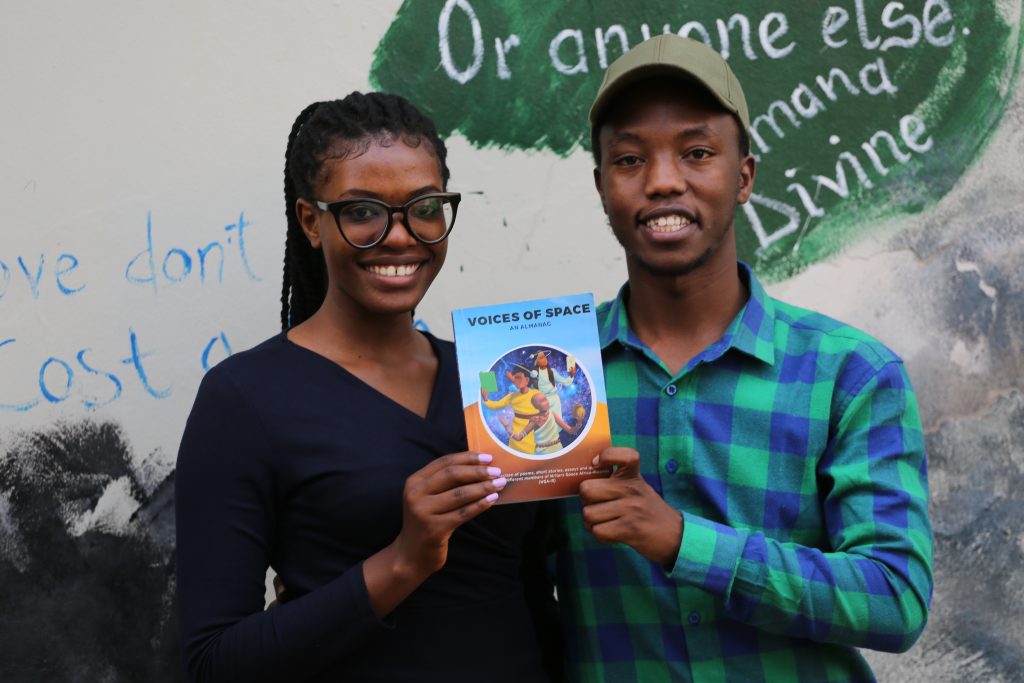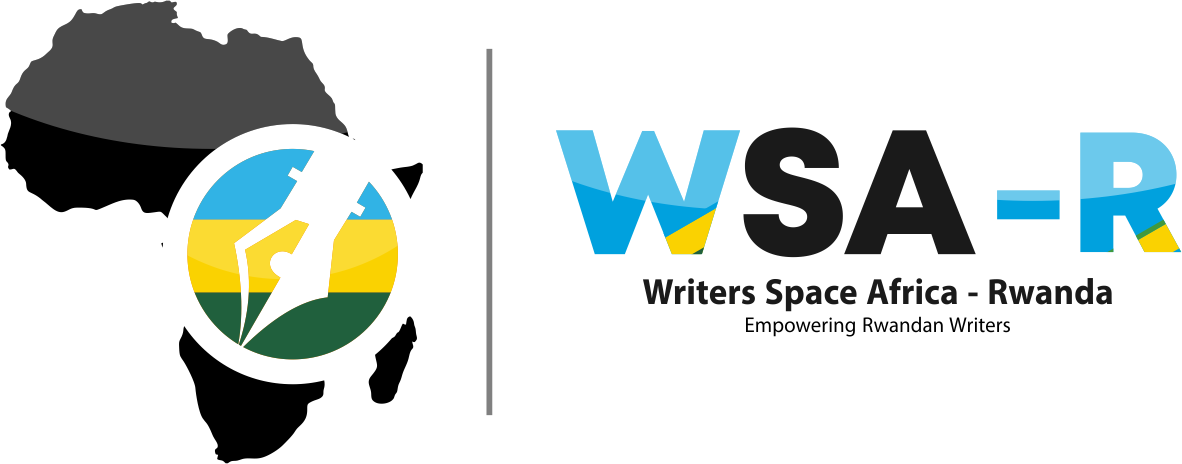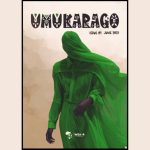Patrick Nzabonimpa, also known as Tom, is a Rwandan writer, poet, and journalist. He serves as the Country Coordinator of the Rwandan chapter of Writers Space Africa (WSA-R), where he actively supports aspiring writers and poets and promotes literary activities. He spearheaded the project of writing and publishing ‘Voices of Space: An Almanac’, a collection of poems, stories, essays, and quotes, that was released in February 2022.
Patrick’s works have been published in numerous literary magazines and anthologies, including WSA Magazine, Brittle Paper, Africa in Dialogue, the Twaweza anthology, Beans Without Korkor and Other Stories anthology as well as Thread and Faces: Stories on Identity and Belonging anthology, among others. When he’s not immersed in his creative pursuits, he can often be found savouring a cup of tea.
In this dialogue, he is joined by Sakina Amina Igeno, a Rwandan poetess and writer.
Igeno: Thank you so much Patrick for allowing me to quench my thirst about Voices of Space. Tell me, how many writers did you bring together in this book?
Patrick: Thank you Sakina for having me. I am also glad to hear that you enjoyed Voices of Space: An Almanac. This multi-genre anthology brought together 44 writers who are part of the Rwandan chapter of Writers Space Africa (WSA-R). In fact, it holds their voices.
Igeno: I was particularly impressed by the multi-everything, if I may say so myself; multi-authors, multi-genres, and multiple languages. How did you come up with such a brilliant idea?
Patrick: Multi-everything! (laughs). Of course the anthology features works by multiple writers in multiple languages and genres. The idea for the anthology came about from a desire to showcase the diversity and richness of literary voices from around Rwanda, starting with WSA-R. We wanted to celebrate the unique perspectives and storytelling traditions of different languages while also fostering collaboration and experimentation across multiple creative writing genres. By bringing together writers from diverse backgrounds and allowing them to explore a variety of genres and languages, particularly English and Kinyarwanda, we hoped to create a collection that would be both eclectic and cohesive, reflecting the richness and complexity of the human experience.
By the way, I am thrilled to hear that you were awed by the multi-everything nature of our anthology, and we hope that readers will be inspired by the diverse array of voices and perspectives that it represents.
We wanted to celebrate the unique perspectives and storytelling traditions of different languages while also fostering collaboration and experimentation across multiple creative writing genres.
-Patrick Nzabonimpa
Igeno: Indeed, you have achieved your goal with the almanac being both diverse and rich. There is a Rwandan proverb that says, Uburo bwinshi ntibubyara umusururu, which roughly translates to ‘mixing a lot of things does not bring quite good results,’ but the voices in the Voices of Space kind of mock the proverb. How did you manage different authors, genres, and languages in such a way as to produce one cohesive product? What were the challenges and perks of incorporating diversity?
Patrick: Thanks for reminding me of the proverb. I find some truth in it, but I believe that when a lot of things are well managed, there is a difference. As the editor-in-chief and one of the contributing writers for Voices of Space, it was definitely a challenge to incorporate such a diverse range of writers, genres, and languages into one cohesive product. However, with the entire editorial team, we embraced the challenge with open arms, as we believe that diversity is essential in creating a rich and engaging reading experience. To achieve this, we had a rigorous editing process that ensured each piece of writing was well-crafted and fit seamlessly into the larger narrative of the collection. We also made a conscious effort to give each author the space to express themselves in their own unique voice.
Of course, there were challenges along the way. One of the biggest was not being able to communicate with some contributors who were offline, which caused delays in the process. But despite the challenges, incorporating diversity into the book was rewarding. It allowed us to showcase a wide range of perspectives and experiences, and it made the book feel more relevant and meaningful to a broader audience. In the end, I believe that our efforts to create a diverse and rich anthology paid off.

Copies of Voices of Space: An Almanac.
Igeno: Before I move on to something more personal, is there anything you would like to share that I haven’t covered yet?
Patrick: I would like to express my gratitude to every person who contributed to the process of bringing Voices of Space: An Almanac to life. Those include the 44 writers, the six editors, the designer, and the salespeople.
Igeno: Patrick, do you have a particular pen name like most authors, or do you use your birth name?
Patrick: Well, I typically use my birth name, Patrick Nzabonimpa, along with ‘Tom’. For poetry, I often go by ‘Tompoet’.
Igeno: Why Tom? Is there a story behind it that you would like to share? Is it the name of someone you admire, or do you simply like the name?
Patrick: Well, back in high school when I was in Senior one, I was one of the best basketball players in my class. In 2010, there was a player for APR called Thomson Robert, and my colleagues would say that I scored like him. So, instead of calling me Thompson, they shortened the name to ‘Tom’.
Igeno: As a basketball fan, I am intrigued. I hope that one day you will give me another session solely about basketball. So, Mr. Tom, your piece titled Homeless in this anthology is quite interesting. To be honest, it has vivid imagery, but whenever I reread it, the story sounds different. What mood were you in when writing it, if you remember? What was the inspiration and the message?
Patrick: Homeless is one of my favourite couplets. It portrays the struggles and hopes of young black boys who are living in poverty and sometimes homeless. While writing this, I combined strong imagery with a clear message of hope and resilience. To answer your question, writing this poem, I was inspired by the broad idea of struggles of marginalised and impoverished communities, particularly young black boys who face issues like homelessness, poverty, and violence. I reflected on the lifestyle of some of these boys and the broader societal issues related to inequality and injustice. I tried to convey a sense of hope as I conclude the poem, but of course, I was still worried about the lifestyle, which pushed me to leave room for the readers to also reflect on it and perhaps do something.
Igeno: Apart from reflecting on the world we live in, what else do you expect readers to take from this piece?
Patrick: I expect people to have different takeaways since reading a poem is subjective. Whatever emotion the piece stimulates in the reader would be awesome.
Igeno: That’s pretty awesome. Moving on, what kind of story is Men Never Get Satisfied? As a man, is that how you really perceive your nature, or did something else fuel the storyline?
Patrick: Well, Men Never Get Satisfied is just a short work of fiction about a character whose sister kills her husband after he cheats on her multiple times. I remember writing it back in 2021. I was inspired by different stories I had been hearing on the radio, including Radio 1, about wives killing their husbands and vice versa. I reimagined the scenario and supposed my protagonist was the brother of one of these wives, and built my story around that. I wanted to shed light on one of the issues that lead to these homicides—infidelity—and urge married couples to stop this behaviour as it may lead to unexpected murders. I titled it Men Never Get Satisfied because it was one of the phrases the woman mentioned to her brother, justifying why she killed her husband. The story was originally published in Brittle Paper.

Patrick Nzabonimpa presenting a copy of Voices of Space:An Almanac to Diane Mbabazi, one of the readers.
Igeno: Interesting! In the story, you used an idiom, right? What does ‘being at sixes and sevens’ mean?
Patrick: Yes, being at sixes and sevens’ is an English idiom. It is used to describe a state of confusion or disorder. I just love it.
Igeno: And now I’m hooked too. I will never be confused again; I will just be at sixes and sevens. So, are there any poets or writers featured in Voices of Space: An Almanac who have particularly influenced your work?
Patrick: Yeah, sure. I’d say all the writers featured in the book influenced my work in one way or another. I’ve read all the works and have learned a thing or two from each, which helped me improve my own writing. I believe that everything I read influences my writing, either knowingly or unknowingly.
Igeno: Great! Are there any upcoming projects in WSA-R that you are particularly excited about?
Patrick: After releasing Voices of Space, we collected feedback from our readers and we intend to consider them for our next anthology. This year, we plan to start working on a poetry anthology that explores themes of love and relationships. This time, we want to include illustrations. The project is now on the designing stage.
Igeno: Great! What would you tell poets out there who want to be featured in the next anthology?
Patrick: I’d urge them to stay alert and follow us on social media (WSA-Rwanda) and our website, writersrwanda.com. The anthology will be creative and, of course, outstanding.
Igeno: Thank you so much for allowing this conversation to happen.
Patrick: Thanks Igeno for having me.
To order a copy of ‘Voices of Space: An Almanac’, simply contact rwanda@writersspace.net or WhatsApp +250781899256. You can also order from Amazon.



